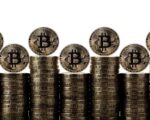
By Kadan Stadelmann
Binance CEO Changpeng Zhao and others were charged with violating the Bank Secrecy Act by failing to implement an effective anti-money laundering programme and for violating U.S. economic sanctions. It was “a deliberate and calculated effort to profit from the U.S. market without implementing controls required by U.S. law,” according to the Justice Department.
Zhao ultimately pleaded guilty to certain charges and Binance will pay a US$4.3 billion dollar fine, the largest penalty in US Treasury and FinCEN history. “This gargantuan settlement reflects the egregious nature of Binance’s conduct, the high volume of its transactions, and the intensity of senior management’s involvement,” wrote John Reed Stark on Twitter.
Binance has for about a year faced increasing scrutiny from regulators worldwide, leading to restrictions and warnings in several countries. As a proactive measure, Zhao may have decided that new leadership would be better equipped to navigate these challenging regulatory landscapes. Furthermore, succession planning might have played a role in this transition. Zhao likely recognises the importance of ensuring smooth leadership transitions for long-term sustainability and growth.
Authorities obtained compelling evidence linking Zhao to various suspicious transactions and fraudulent practices. This development has put immense pressure on Binance, one of the largest and most influential cryptocurrency exchanges. Zhao ultimately pleaded to certain charges related to his alleged involvement and resigned from his position as CEO of Binance. After the news, nearly US$175 million worth of crypto was liquidated.
Zhao’s departure has many implications for the cryptocurrency industry. Binance has pursued many different verticals, particularly in the decentralised finance (DeFI) industry. His departure could potentially disrupt ongoing projects, partnerships, and strategic decisions that were closely tied to his vision. That could in turn put many crypto startups in lingo, especially in the Binance Smart Chain (BSC) ecosystem, which is a blockchain rolled out by Binance in 2020.
Moreover, Zhao was not only a leader but also a spokesperson for Binance. He communicated his vision for Binance with clarity and charisma, playing a crucial role in building trust among users and investors alike. With Zhao leaving, and so much uncertainty surrounding Binance, it is likely users might seek out alternative exchanges. (They might do well to explore the world of decentralised exchanges)
While expressing gratitude to his team and supporters for their unwavering trust throughout his tenure, Zhao was sure to reassure that Binance will continue operating smoothly under new leadership. This seems likely, with so much at stake.
“Admittedly, it was not easy to let go emotionally. But I know it is the right thing to do,” Zhao said in a statement. “I made mistakes, and I must take responsibility. This is best for our community, for Binance, and for myself.”
To facilitate a smooth transition, the former executive will remain actively involved in strategic decision-making as he transitions to his new role as chairman of Binance’s board of directors. Richard Teng, 53, Binance’s global head of regional markets, will take over.
As far as the exchange itself is concerned, Binance assured its users and stakeholders that operations would continue uninterrupted, emphasising their commitment to maintaining a secure and reliable platform.
Binance faces steep business challenges ahead, but clearly their product and services are in demand. It is likely Zhao had a robust succession plan in place, and global operations will continue as they have been. Whether or not Binance and Zhao face further legal actions remains to be seen.
Kadan Stadelmann is a blockchain developer, operations security expert and Komodo Platform’s chief technology officer.















